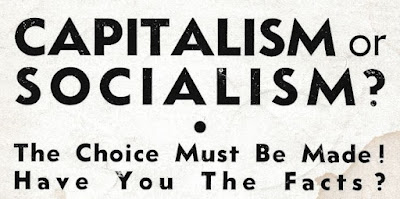The Socialist Party remembers that the politicians of the world work hard to try to maintain a social system which operates directly against the interests of the overwhelming majority of those people. We know that the leaders will lie and betray to protect the interests of their own national ruling class and that, if capitalism demands it, they will have little trouble with their consciences in sending millions of workers to their deaths. Only a complete change in the basis of society can abolish the very material Hell that capitalism has brought us to.
The cynical, the pessimistic, the gloomy-minded, and the supporters of the present rotten foundation of society, observing these facts, are apt to jump to the conclusion that nothing will be done to-day without having money and “status” held up as a prize to provide incentive for the courageous and the skilful. A careful examination of the facts, however, is rewarded by the gratifying information, so full of hope for the future, that the bulk of the important things done to-day, in every direction, for the benefit of humanity, are not done with the object of securing either place or pecuniary advantage , and often foreshadow to the doer social loss, poverty and misery. Of such things are the great industrial discoveries, the great works in literature and other forms of art. When the social organisation has been cleared of the cankerous influence of private ownership in the means of production, with the limitations such a state of affairs imposes upon human activity, everybody will be free to exert their capacities to the full in whatever way they like best, with the only condition that such activity shall not be to the hurt of the rest of the people.
Exploitation by the capitalist class, together with the evils that flow from it, spreads like a plague.
We are often told by supporters of the Labour Party that we are out of touch with the workers. That we do not participate in or encourage them in their daily struggles on the industrial field, nor support them in their efforts to gain legislative reforms.
To test the truth of this, it is necessary to examine the nature and constitution of the two parties: The Socialist Party and the Labour Party. The first is composed of working men and women who have realised the slave position of their class and are organising on carefully defined principles with a definite object clearly stated. The principles and objects are logically evolved from ascertained facts patent to everyone, but so clearly worded that they cannot be misunderstood. As it is a condition of membership that the worker shall understand and endorse the principles, every member is in a position to participate intelligently in a movement that is really democratic. In other words, the members control the activities of the party.
The Labour Party is the opposite of this in character and constitution. True, it is composed mainly of working-class men and women; but few of them understand how completely they are enslaved by the wages system ; or the necessity for its abolition. Beyond the understood practice of electing leaders to Parliament, and the non-Socialist objects of nationalising industries, nothing is clearly defined. This lack of principles and socialist objective, permits a wide freedom of action to ambitious schemers for power. The result is confusion, not only in the minds of the rank and file, but also among the leaders themselves.
Every question that is dragged to the front in Parliament and Press is responsible for differences among the Labour leaders. Right and Left Wings, and sometimes a centre as well, take up different attitudes, neither of which is in accord with an analysis of the case from the working-class viewpoint.
This confusion, as can readily be seen, is due to the absence of any clearly-defined basis, outlining the position and objective of the organisation.
The lack of unity among the leaders, however, does not prevent them from lecturing the workers on the need for unity among themselves. The contradictory and useless reforms advocated from time to time by innumerable leaders, and would-be leaders, form the basis of Labour action—a foundation of shifting sands on which the workers are exhorted to erect and maintain a united organisation.
Contrast this confusion with the attitude of the Socialist Party. Questions that agitate the public are always analysed from the standpoint that the workers are a slave-class—that there can be no identity of interests between them and the class that owns the means of life and enslaves them. If the questions involve capitalist interests only, we refuse to take up sides, but always point out their unimportance for the worker. The clearly-defined position laid down in the Party’s principles enables every member to analyse any question prominently before the public, or any reform advocated by politicians.
The Labour Party encourages the workers to struggle for reforms within the present system. The Socialist Party tells the workers that capitalism is the capitalists’ own system, and if the latter want it to last, it is their business to patch it up. Obviously they will endeavour to make working-class conditions more endurable in proportion as a genuine working-class party develops and threatens their system.
How far the leaders of the Labour Party are out of touch with the workers can easily be seen by a study of their activities in Parliament. Most of the debates in which they take part have no bearing on working-class conditions, and are not of the slightest interest to the workers. Parliament for the leaders is merely a hunting-ground for prominence and positions.
The pamphlets and periodicals of the Labour Party have never explained socialism to the workers other than a mixture of sentimentalism, hero-worship and quite orthodox comments on current capitalist politics. Its tone is of the intellectuals. Insignificant ideas magnified by ostentatious phraseology constitute one of its chief assets—its fantastic ideas of reform, and its ultra dignified philosophy on social questions carry no message which the average worker can understand; it would indeed be surprising if he or she could.

.jpg)




